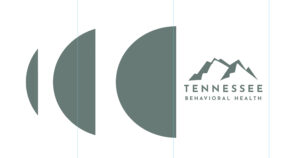Cocaine Psychosis Definition and Overview
Cocaine psychosis is a drug-induced psychiatric disorder triggered by cocaine use. It presents with psychotic symptoms like hallucinations, delusions, and aggressive behavior. The condition is caused by excessive dopamine levels from heavy cocaine consumption.
Tennessee Behavioral Health
Prevalence and Statistics
Cocaine-induced psychosis affects a significant number of individuals with cocaine use disorder. Up to 68% of current cocaine users report symptoms of psychosis during or after use. Chronic cocaine users and individuals with co-occurring mental disorders are most at risk.
Causes of Cocaine Psychosis
Chronic Cocaine Use
Long-term cocaine use alters brain chemistry and dopamine regulation. High doses of cocaine overstimulate pleasure centers and lead to disordered thinking. Chronic use is a primary factor for developing cocaine-induced psychotic disorder.
Co-occurring Mental Health Disorders
People with Bipolar Disorder or other mood disorders face an increased risk for psychosis. Co-occurring mental illnesses like personality disorders heighten the effects of cocaine on the brain. Continued cocaine use often worsens underlying mental health conditions.
Genetic and Environmental Factors
Genetic predisposition and environmental stressors both contribute to the onset of cocaine psychosis. Individuals with family histories of mental illness are more susceptible. A lack of sleep, unsafe surroundings, and early onset of cocaine use increase vulnerability.
Symptoms of Cocaine Psychosis
Hallucinations
Cocaine hallucinations may include auditory, visual, and tactile hallucinations. A common symptom is the feeling of insects crawling under the skin, known as “cocaine bugs.” These symptoms reflect a disruption in normal sensory processing caused by elevated dopamine levels.
Paranoia and Delusions
Cocaine-induced paranoia and paranoid delusions are among the most intense symptoms. Individuals may experience irrational fear, grandiose delusions, or homicidal thinking. These mental illness symptoms often mimic schizophrenia but are tied to cocaine use.
Aggression and Agitation
Cocaine-induced psychosis often results in agitated behavior and aggressive responses. Acute psychosis can lead to hostile behavior, impulsivity, and violent outbursts. Nervous system instability and elevated heart rate contribute to these episodes.
Early Warning Signs
Recognizing Initial Symptoms
Initial signs of cocaine psychosis include disorganized thoughts, restlessness, and emotional volatility. These symptoms often appear after a short period of heavy cocaine use. Individuals may display psychotic behavior even during the early stages of drug abuse.
Behavioral Changes
Sudden mood swings, increased irritability, and irrational actions are warning signs. Cocaine addicts may withdraw socially, experience intense cravings, and show erratic conduct. These behavioral changes are linked to neurological disruption and psychological symptoms.
Diagnosis of Cocaine Psychosis
Clinical Assessment
Medical professionals use diagnostic criteria to identify cocaine-induced psychotic disorder. A full clinical assessment includes drug history, psychiatric symptoms, and withdrawal response. Primary care practitioners may refer patients to addiction specialists for evaluation.
Differentiating from Other Psychotic Disorders
Cocaine-induced psychosis must be distinguished from disorders like schizophrenia or affective disorders. Timing of symptoms in relation to drug use helps clarify the diagnosis. Substance-induced psychosis typically resolves after cessation of drug use.
Treatment Options
Tennessee Behavioral Health
Detoxification and Withdrawal Management
Cocaine detox is the first step in the treatment of cocaine dependence. Withdrawal symptoms may include depression, fatigue, and anxiety. Medical supervision ensures safety and manages intense symptoms during this period of time.
Pharmacological Interventions
Antipsychotic drugs are used to reduce symptoms of psychosis and stabilize mood. Antipsychotic medication may be combined with other medications to treat comorbid substance use disorders. Medical professionals adjust doses based on severity and response.
Psychotherapy and Counseling
Cognitive-behavioral therapy helps individuals manage delusions, cravings, and mood swings. Family therapy sessions offer education and support for loved ones. A non-pharmacological approach using behavioral therapy is key to achieving recovery goals.
The Role of Support Systems
Family and Friends
Support from family and friends increases success rates in recovery. Loved ones can help monitor signs of cocaine psychosis and encourage continued treatment. A supportive care network improves long-term outcomes.
Professional Guidance and Counseling
Professional treatment centers like Tennessee Behavioral Health provide individualized care plans. Our expert team addresses both substance use and mental health issues. Outpatient treatments allow patients to receive care while maintaining daily routines.
Risks and Consequences of Untreated Cocaine Psychosis
Potential for Violent Behavior
Untreated cocaine-induced psychosis increases the risk of violent behavior. Intense paranoia, delusions, and hallucinations can lead to dangerous actions. Immediate intervention by emergency services is often required to protect the individual and others.
Progression to Schizophrenia
Long-term cocaine use may lead to a progression from acute psychosis to chronic psychiatric disorder. Individuals with a family history of schizophrenia face a higher risk. Early intervention is critical to prevent the development of persistent psychotic disorders.
Recovery and Rehabilitation Programs
Comprehensive Addiction Therapy
Treatment for cocaine psychosis includes addressing psychological, emotional, and physical health needs. At Tennessee Behavioral Health, we use a multifaceted approach to cocaine addiction. Each cocaine addiction treatment plan is customized to address specific challenges.
Specialized Facilities Globally
Inpatient treatment options are available in specialized centers like Pinnacle Peak Recovery. These facilities offer structured environments and access to clinical trials. However, many cocaine addicts benefit from outpatient care, which allows greater flexibility and support.
Long-term Management and Relapse Prevention
Building a Supportive Network
Ongoing recovery depends on support systems, including family, peer groups, and professionals. Individuals at risk of relapse benefit from structured environments and accountability. A safe environment is essential for maintaining recovery and mental health stability.
Ongoing Medical and Therapeutic Interventions
Long-term cocaine use requires continuous management and periodic reevaluation. Medical professionals monitor brain chemistry, psychological symptoms, and behavioral patterns. A combination of medication and therapy supports stability and reduces relapse risk.
Final Thoughts
Cocaine-induced psychosis is a severe mental health condition that affects individuals using high amounts of cocaine. It presents with symptoms of psychosis including hallucinations, paranoia, and aggression. Risk factors include co-occurring mental disorders, chronic cocaine abuse, and genetic predisposition.
Diagnosis and treatment require a categorical approach using clinical assessments and clear diagnostic criteria. Treatment options include detoxification, antipsychotic medication, and psychotherapy. Recovery is most effective with strong support systems and long-term therapeutic care.
At Tennessee Behavioral Health, we offer outpatient treatments that address cocaine-induced psychotic disorder and underlying mental health issues. Our compassionate team is here to guide you toward a safe recovery and lasting change. If you or a loved one is experiencing symptoms of cocaine psychosis, reach out today. Our professional treatment team is ready to help.

Tennessee Behavioral Health
FAQ's
Yes, cocaine psychosis can occur even after a single high dose, especially in individuals with a genetic predisposition or mental health vulnerabilities.
In many cases, cocaine psychosis resolves after stopping drug use, but persistent symptoms may occur with prolonged or repeated exposure.
A bad trip is typically linked to hallucinogens and often short-lived, while cocaine psychosis can last longer and involve more intense paranoia and delusions.
There is no single test. Diagnosis is based on clinical evaluations, drug history, symptom patterns, and ruling out other psychiatric disorders.



